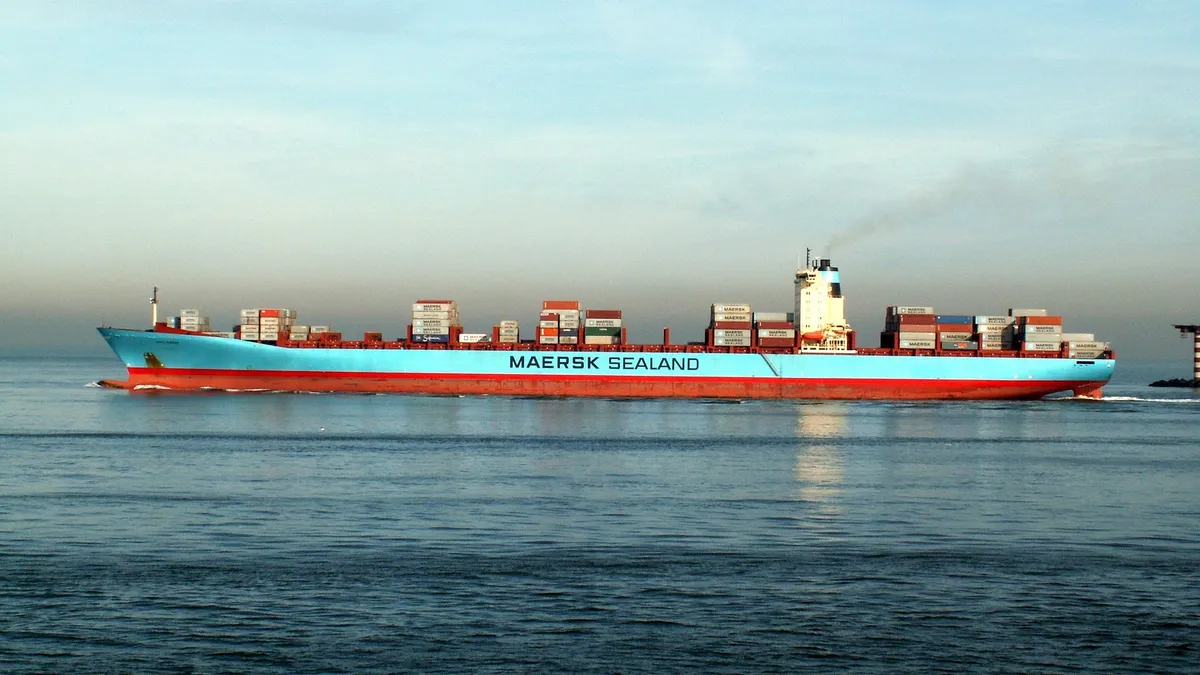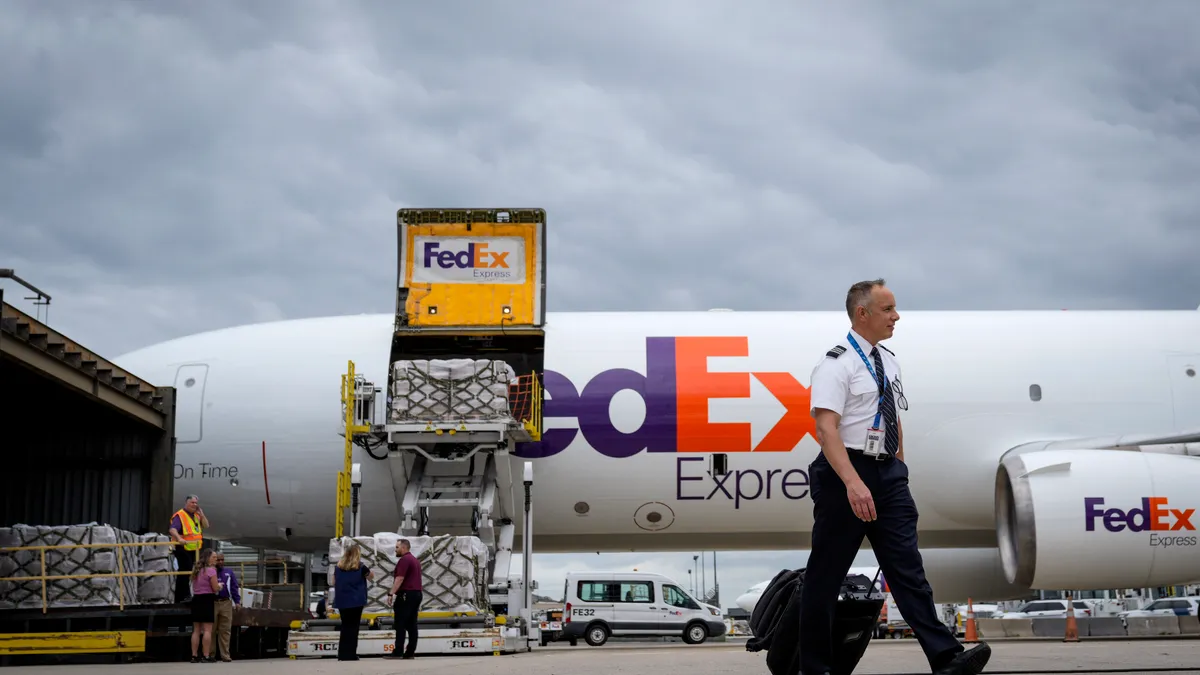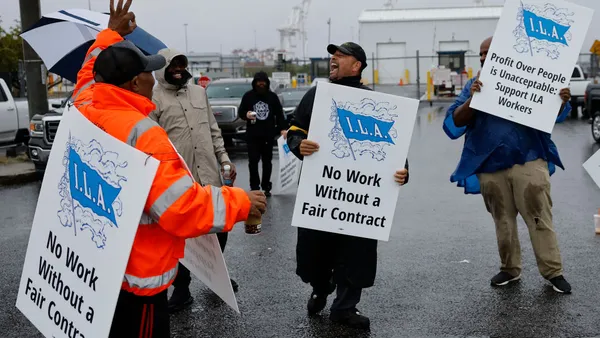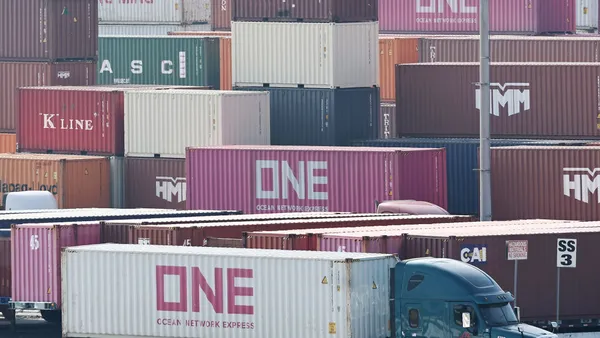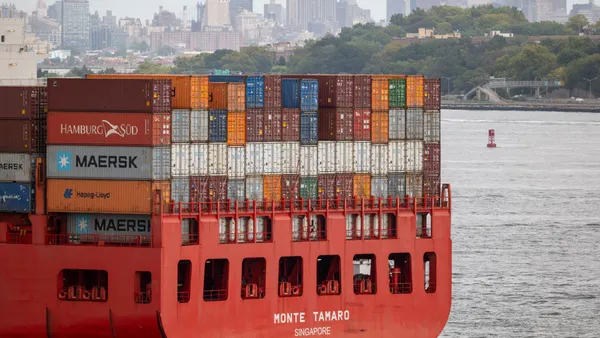Dive Brief:
- Maersk is committing 300 of its vessels to the global Voluntary Observing Ship (VOS) program to assist with international climate and weather pattern research and forecasting, according to a press release Wednesday. The commitment brings the entirety of Maersk's fleet into the program by the end of 2020.
- "If we can help create even marginal improvements to the quality of weather routing services, these will be important levers in our constant efforts to improve the safety of our crews and assets and ensure reliable arrival times for our customers’ supply chains," Aslak Ross, Maersk’s head of marine standards, said in a statement.
- The VOS program involves a crew member manually reporting meteorological data from scientific instruments installed aboard a ship, or via more advanced, automated weather stations (AWS) that record and transmit data hourly to designated research stations, according to the release.
Dive Insight:
Optimal routing is key to on-time, safe and efficient delivery across major freight modes. Long distances traveled by ocean can involve the risk of sudden storms, temperature or wind changes or other meteorological factors that can impact delivery times or even close ports for multiple days.
Between 30% and 50% of maritime cargo travels uninsured, according to a Loadstar report last year. Therefore loss, damage or delay (due to weather or other factors) is of significant concern to shippers, particularly because those challenges can occur in remote locations where communication or emergency services access might be limited.
Maersk has been participating in the VOS program since last year, Ross told Supply Chain Dive via email.
"As a global container logistics company, our vessels form a vital role in keeping supply chains moving safely and timely. Helping weather forecasting and climate science advance makes great sense to us, since both of these areas affect our operations in various ways," Ross said in a statement.
A better understanding of weather patterns can help the carrier to optimize routes for fuel efficiency, and crew and cargo safety, which helps the carrier improve service for shippers while working toward its carbon neutrality goals, he said.
The short-term benefits of AWS systems on ships include streamlining the crew's existing weather tracking processes and transmitting better quality data to scientists. The long-term benefits of improved real-time weather tracking and forecasting, however, are where Ross anticipates the most added value for the carrier and its customers.



